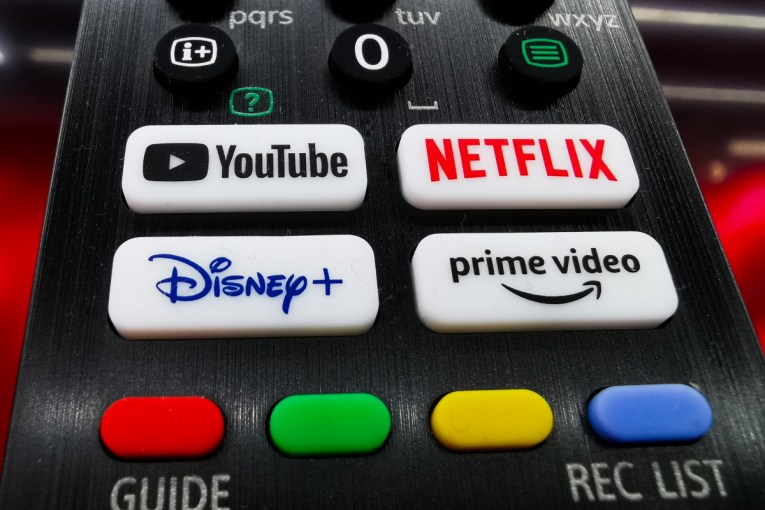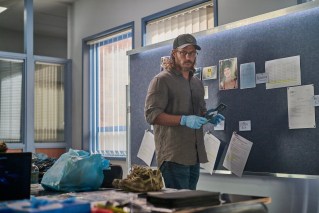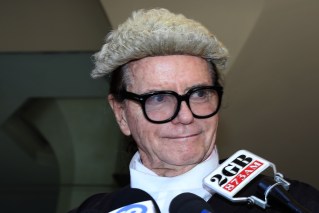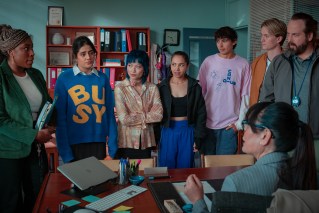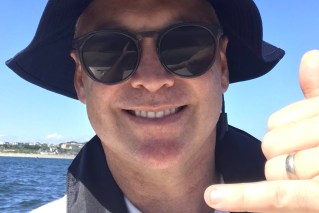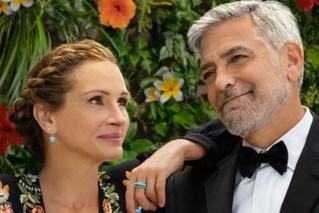Ridiculous details of the doomed Fyre Festival revealed in duelling documentaries

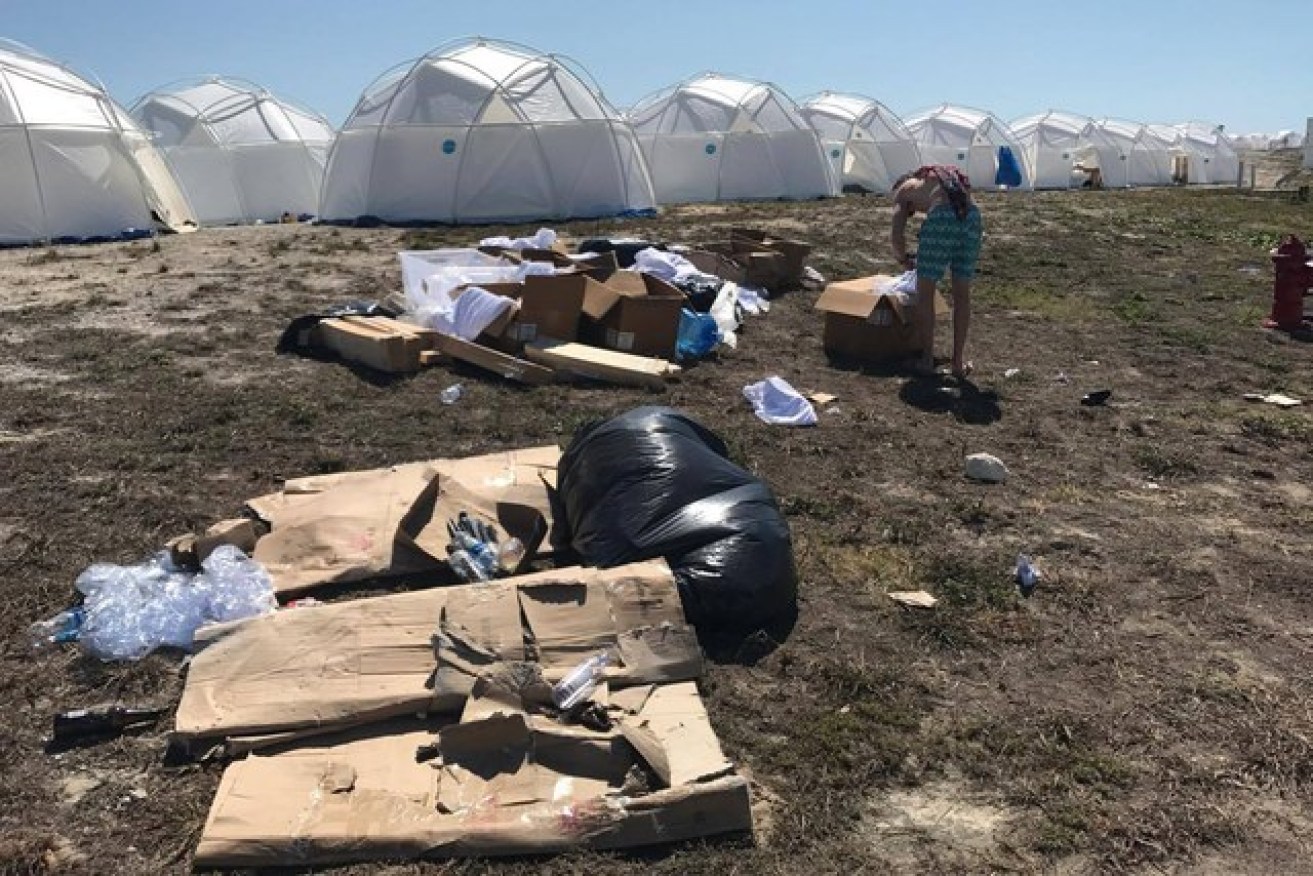
Fyre Festival was beset with issues from the beginning. Now, two new documentaries try to uncover what went so horribly wrong. Photo: Fyre: The Greatest Party that Never Happened
Billed as an “immersive party experience” set over “two transformative weekends” on the private Bahaman island of Fyre Cay – once inhabited by Pablo Escobar – the inaugural Fyre Festival in April 2017 promised ticket holders a lot.
Among the lures: luxury accommodations, private beaches, and “the best in food, art, music and adventure” for anyone wanting to pay from $5600 to upwards of $352,000 for the privilege.
Instead, the event made headlines worldwide— and sparked an avalanche of social media schadendfreude— after attendees reported a situation described by one partygoer as a “Lord of the Flies sequel” with flimsy tents and cheese sandwiches distributed from the back of trucks with no security or electricity.
How could it have gone so wrong? The answers seem to be a modern — and tangled — saga of social media, star power, delusion and dicey dealings.
Last week Netflix and US streaming platform Hulu both released documentaries to get to the bottom of how Fyre founder Billy McFarland, 28, his rapper partner Ja Rule and Fyre CMO Grant Margolin thought the luxury music experience could be pulled together with no experience in less than six months.
The results are like witnessing a slow-motion car crash, with very expensive cars and drivers asleep at the wheel.
Both Hulu’s Fyre Fraud and Netflix’s Fyre: The Greatest Party That Never Happened, outline how McFarland’s first big idea was an elite credit card for millennials called Magnises. It would give users exclusive access to parties and networking opportunities.
When McFarland had difficulty trying to book Ja Rule for a Magnises party, he came up with the idea for the Fyre app, where users could go to book big talent for private gigs, described in the doco as having the potential to become the “Uber of booking talent.”
The rapper loved the app idea and came aboard as a celebrity partner. Fyre Fest, it turns out, was primarily a means to promote the app.
The event was marketed to a cashed-up younger crowd by models like Kendall Jenner (who according to Fyre Fraud was paid up to $US250,000 to announce the festival line-up) and social media influencers.

Fyre Festival utilised supermodels and Instagram influencers to market the luxury experience to the average punter. Photo: Fyre: The Greatest Party that Never Happened
“We’re selling a pipe dream to the average loser,” explains McFarland to a group of supermodels, including Shanina Shaik, in Fyre. Harnessing the power of FOMO, within 48 hours, they sold 95 per cent of their tickets.
Away from Instagram, the reality was a disaster from the jump. From having to switch the island where it was going to be held to tents normally used to house survivors after natural disasters instead of villas to the bands dropping out the last minute, what could go wrong did.
Some of the scenarios are downright ridiculous: “We had 250 houses rented for millions of dollars,” McFarland claims in the Hulu doc.
“We had a box of physical keys. The box of keys, unfortunately, went missing.”
Andy King, one of the event’s producers tells Netflix that he was asked by McFarland to “save” the festival by performing oral sex on a customs official to secure water for the event.
“I literally drove home, took a shower, I drank some mouthwash,” he says in Fyre. “I’m like, oh my gosh I’m really … and I got into my car to drive across the island to take one for the team.”

One of the many flimsy tents dotted across the festival site. Photo: Fyre Fraud
While Hulu’s show gives more insights into McFarland’s early life and psychology, Netflix focuses on the fallout, revealing Fyre organisers fled for their lives moments after ticket holders and local merchants got word that the festival was officially cancelled and vendors would not get paid.
Bahamian restaurant owner Maryann Rolle spent around $50,000 of her own money to pay workers left in the lurch by Fyre. Since the Netflix documentary began streaming, she’s raised over $185,000 on a Go Fund Me page.
Wannabe tech-entrepreneur McFarland, meanwhile, is serving a six-year prison sentence after pleading guilty to defrauding investors and ticket vendors of over $US26 million with Fyre Fest, as well as one count of wire fraud and another of bank fraud.

Billy McFarland attempted to explain his actions in Fyre Fraud. Photo: Fyre Fraud
“The internet doesn’t have teachers, parents or rules,” he says in Fyre Fraud in an attempt to explain his actions.
“No one to tell you what is wrong.”
